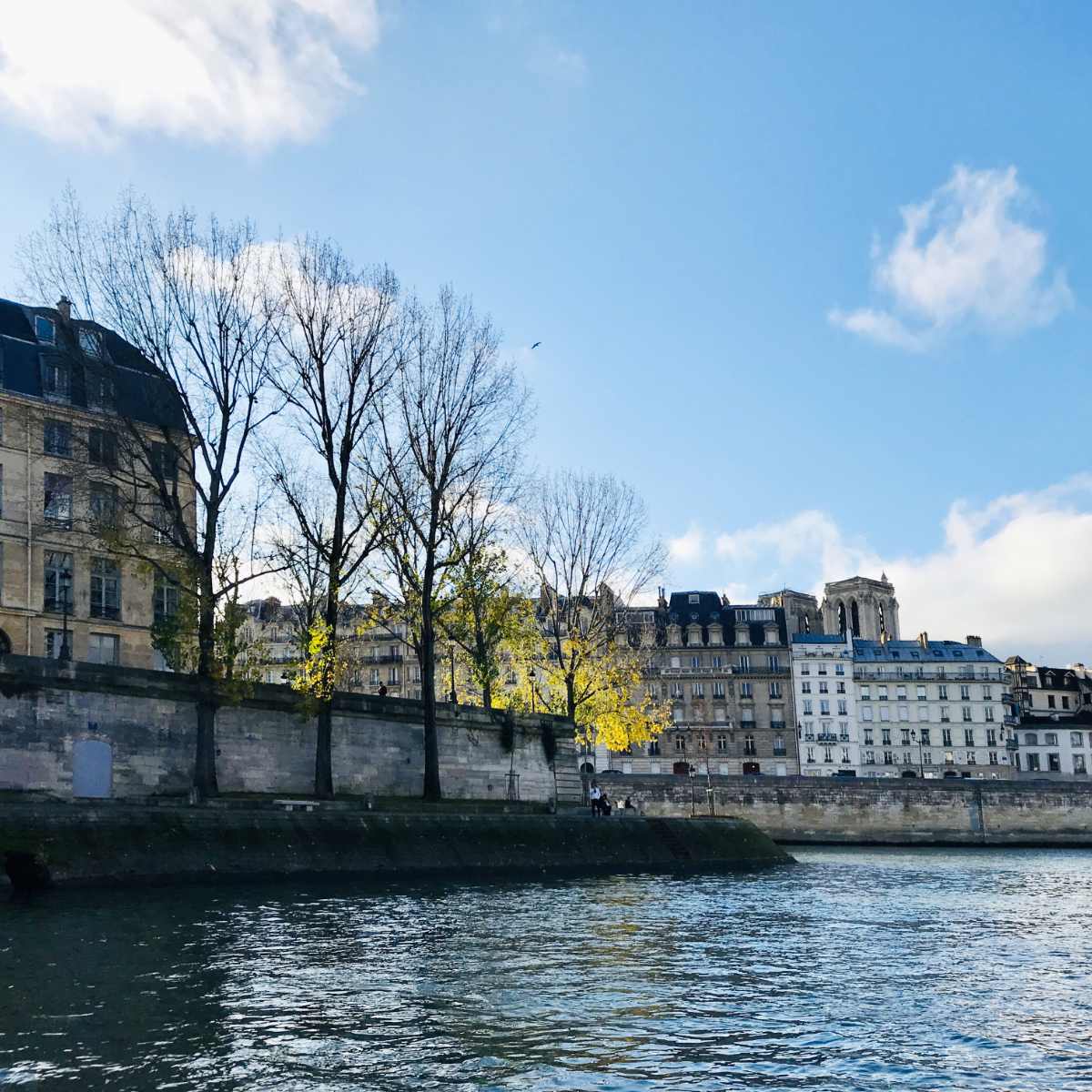The French are known for their love of language. And poetry is no different. French children as young as 4 are required to memorize recite poetry in school as part of the normal curriculum.
And it must be said that French poets and poetry are as varied and diverse as the country itself. With a rich and varied history in both classical and modern poetry, there are many different forms of poetry in French from rhyming verse, prose poems, sonnets, and villanelles.
Dating back centuries, it is about more than just rhyming. It is a form of expression to allow the poet and artist to say what he wants in his own way.
French poetry emphasizes on thoughts and feelings and is filled with metaphors and descriptions of scenes, feelings and emotions. Many French poems are rather sad and melancholic in nature, whether they be about lost loves or other turmoils.
I confess it hasn’t been easy to narrow down the most famous French poems out there, but here are some of the top poems that are still widely beloved, years after they were written. Allons-y!
1. Demain, dès l’aube – Victor Hugo
The legendary writer and politician Victor Hugo wrote one of France’s most famous poems, about sorrow and mourning after the death of his daughter Léopoldine.
She accidentally drowned with her husband in 1843. Hugo wrote the poem four years after the tragedy, invoking the sadness of visiting her grave. The poem was included in his poetry collection Les Contemplations.
| French Poem | English Translation |
|---|---|
| Demain, dès l’aube, à l’heure où blanchit la campagne, Je partirai. Vois-tu, je sais que tu m’attends. J’irai par la forêt, j’irai par la montagne. Je ne puis demeurer loin de toi plus longtemps. | Tomorrow, at dawn, at the moment when the land whitens, I will leave. You see, I know that you are waiting for me. I will go through the forest, I will go across mountains. I cannot stay away from you any longer. |
| Je marcherai les yeux fixés sur mes pensées, Sans rien voir au dehors, sans entendre aucun bruit, Seul, inconnu, le dos courbé, les mains croisées, Triste, et le jour pour moi sera comme la nuit. | I will walk eyes fixed on my thoughts, Without seeing anything outside, without hearing a noise, Alone, unknown, back hunched, hands crossed, Sorrowed, and the day for me will be as the night. |
| Je ne regarderai ni l’or du soir qui tombe, Ni les voiles au loin descendant vers Harfleur, Et, quand j’arriverai, je mettrai sur ta tombe Un bouquet de houx vert et de bruyère en fleur. | I will watch neither the evening gold fall, Nor the faraway sails descending upon Harfleur. And when I arrive, I will put on your grave A bouquet of green holly and heather in bloom. |
2. Un baiser – Edmond Rostand
French poet Edmond Rostand write the following classic love poem Un Baiser (meaning “a kiss”) in his most famous work, Cyrano de Bergerac published in 1897.
| French Poem | English Translation |
|---|---|
| Un baiser, mais à tout prendre, qu’est-ce que c’est ? Un serment fait d’un peu plus près, une promesse plus précise, | A kiss, but all in all, What is that ? An oath that is closer, a promise more precise, |
| Un aveu qui veut se confirmer, un point rose qu’on met sur l’i du verbe aimer ; c’est un secret qui prend la bouche pour oreille. | A confession that wants to be confirmed, a pink dot that we put on the i of the verb to love; it’s a secret that takes word of mouth. |
3. Le Muguet – Robert Desnos
May 1st, which doubles as May Day in France as well as Labor day. The day is an annual public holiday in France, and the French poem Le Muguet by Robert Desnos is often recited in schools and all around to celebrate the start of spring.

In France, the tradition is for children (and the young at heart) to collect lilies of the valley to present a bouguet to friends and family.
In this poem, the author reminisces being a child and collecting the bouquets (as opposed to buying at a florist!)
| French Poem | English Translation |
|---|---|
| Un bouquet de muguet, Deux bouquets de muguet, Au guet ! Au guet ! Mes amis, il m’en souviendrait, | A bouquet of lilies, Two bouquets of lily of the valley, On the lookout! On the lookout! My friends, I remember it, |
| Chaque printemps au premier Mai. Trois bouquets de muguet, Gai ! Gai ! Au premier Mai, Franc bouquet de muguet. | Every spring on May 1st. Three bouquets of lily of the valley, Cheerful! Cheerful! On May 1st, a generous bouquet of lily of the valley. |
You can read about more French poetry for kids here.
4. L’attente – Molière
L’attente meaning “the wait” is from legendary French writer Molière in his play Amphitryon, which was first presented in 1668.
| French Love Poem | English Translation |
|---|---|
| L’attente d’un retour ardemment désiré Donne à tous les instants une longueur extrême, | The wait for a longed-for return Gives us all the moments of extreme length, |
| Et l’absence de ce qu’on aime, Quelque peu qu’elle dure, a toujours trop duré. | And the absence of what we like, However long it lasts, has always lasted too long. |
5. Les Feuilles mortes – Jacques Prévert
The famous french poem les feuilles mortes was written in 1945 at the end of WWII, would go on to become an internationally renowned song.
It was originally written to accompany an instrumental score that Joseph Kosma composed for Roland Petit’s ballet Le Rendez-vous (1945). It then became a song in the 1946 film Les Portes de la nuit (Gates of the Night) where it was sung by Irène Joachim.
Other famous French renditions of Les Feuilles Mortes have been performed by Yves Montand and Édith Piaf. The most famous English version was titled “Autumn Leaves”, and was sung by Frank Sinatra and Nat King Cole.
| French Poem | English Translation |
|---|---|
| Oh, je voudrais tant que tu te souviennes, Des jours heureux quand nous étions amis, Dans ce temps là, la vie était plus belle, Et le soleil plus brûlant qu’aujourd’hui. | Oh, how I would like for you to remember, The happy days when we were friends, At the time, life was more beautiful, And the sun burned brighter than today. |
| Les feuilles mortes se ramassent à la pelle, Tu vois je n’ai pas oublié. Les feuilles mortes se ramassent à la pelle, Les souvenirs et les regrets aussi, | Dead leaves are collected with a shovel, You see, I have not forgotten. The dead leaves are collected with a shovel, Memories and regrets as well. |
| Et le vent du nord les emporte, Dans la nuit froide de l’oubli. Tu vois, je n’ai pas oublié, La chanson que tu me chantais. | And the North Wind carries them, Through the cold night of oblivion. You see, I have not forgotten, The song that you used to sing to me. |
| C’est une chanson, qui nous ressemble, Toi qui m’aimais, moi qui t’aimais. Nous vivions, tous les deux ensemble, Toi qui m’aimais, moi qui t’aimais. | It is a song that now resembles us, You who loved me, me who loved you. We were living, both of us together, You who loved me, me who loved you. |
| Et la vie sépare ceux qui s’aiment, Tout doucement, sans faire de bruit. Et la mer efface sur le sable, Les pas des amants désunis. | And life separates those who love, Very gently, without making a sound. And the sea washes away on the sand, The footprints of lovers separated. |
6. L’amour est le miel – Victor Hugo
French writer Victor Hugo, who wrote such famous novels as Les Miserables and children’s books like the Hunchback of Notre Dame, also wrote a play called Le roi s’amuse (meaning “the King amuses”).
In it, he has a beautiful romantic verse that goes as follows:
| French Poem | English Translation |
|---|---|
| La vie est une fleur, l’amour en est le miel. C’est la colombe unie à l’aigle dans le ciel, | Life is a flower love is its honey. It is the dove united with the eagle in the sky, |
| C’est la grâce tremblante à la force appuyée, C’est ta main dans ma main doucement oubliée. | It is trembling grace with sustained force, It’s your hand in my hand gently forgotten. |
The line “La vie est une fleur, l’amour en est le miel.” remains one of the most famous French quotations about love, to this day.
7. Le Dormeur du Val – Arthur Rimbaud
A beautifully sad poem, Le Dormeur du Val was written in 1870 at the height of the Franco-Prussian war. The poet, Arthur Rimbaud was 16 years old when he wrote this poem, too young to join the army.
At the time, the Germans had invaded France and laid siege to Paris, forcing Emperor Napoleon III (Napoleon Bonaparte‘s nephew) to abdicate.
This would become one of the most famous French songs of all time, with many adaptations, from classic male singer Michel Sardou to French rappers Booba and MC Solaar.
| French Poem | English Translation |
|---|---|
| C’est un trou de verdure où chante une rivière, Accrochant follement aux herbes des haillons D’argent ; où le soleil, de la montagne fière, Luit : c’est un petit val qui mousse de rayons. | It’s a green hole where a river sings, As it madly hangs onto the wild grass, Of silver; where the sun, from the proud mountain, Shining: it’s a little valley bubbling with light. |
| Un soldat jeune, bouche ouverte, tête nue, Et la nuque baignant dans le frais cresson bleu, Dort ; il est étendu dans l’herbe, sous la nue, Pâle dans son lit vert où la lumière pleut. | A young soldier, open mouth, bare head, And neck bathing in the sweet blue watercress, Sleeping; he is stretched out among the grass, under the cloud, Pale in his green bed where the light rains. |
| Les pieds dans les glaïeuls, il dort. Souriant comme Sourirait un enfant malade, il fait un somme : Nature, berce-le chaudement : il a froid. | Feet in the gladiolas, he sleeps. Smiling like An ill child would smile, he takes a nap: Nature, cradle him in warmth: he is cold. |
| Les parfums ne font pas frissonner sa narine ; Il dort dans le soleil, la main sur sa poitrine, Tranquille. Il a deux trous rouges au côté droit. | Fragrances don’t make his nostrils quiver: He sleeps in the sun, one hand on his chest, Motionless: he has two red holes in his right side. |
8. La nuit magique de Noël – Clement Clarke Moore
For young and old who love poetry at Christmas, we have La nuit magique de Noël. It is an adaptation of “Twas the Night Before Christmas” by Clement Clarke Moore, translated into French.
| French Poem | English Translation |
|---|---|
| Pendant la nuit de Noël Le père Noël Attrape les étoiles Une à une Il en fait un voile Pour la lune. | During Christmas night Father Christmas catches the stars One by one He makes a veil of it For the moon. |
| Puis il va distribuer Ses jouets par milliers Il va les poser tout en bas des sapins En se faisant aider par ses petits lutins. Ensuite le Père Noël va décrocher la lune | Then he will distribute His toys by the thousands He will put them down at the bottom of the trees By getting help from his little elves. Then Santa Claus will take down the moon |
| Puis les étoiles, une à une, Il les remplace par le soleil. Et les cadeaux émerveillent Les enfants qui se réveillent ! | Then the stars, one by one, He replaces them with the sun. And the gifts will amaze the children who wake up! |
You can listen to more French Christmas songs and read about Christmas traditions in France here.
9. Mignonne, allons voir si la rose – Pierre de Ronsard
Born in 1524, Pierre de Ronsard was a major literary figure and poet during the French renaissance. Popular with the royal court, he would be referred to as a “prince of poets”.
“Mignonne” is a French term of endearment, and technically translates to “cute one”, but here can be interpreted as “sweetheart” or “darling”. (The masculine version is “mignon”).
It is believed that he dedicated this poem a 14-year-old girl named Cassandre Salviat, the daughter of a Florentine banker and a somewhat distant relative of Queen Catherine de Medici.
Ronsard fell in love with Cassandre at the Château de Blois, whilst there were both there in service of the royal court. It is not clear if his love was reciprocated, but either way she would go on to marry someone else.
The poem has lived on through the ages, having been reinterpreted dozens of times by later singers and musicians.
| French Poem | English Translation |
|---|---|
| Mignonne, allons voir si la rose Qui ce matin avoit desclose Sa robe de pourpre au Soleil, A point perdu ceste vesprée Les plis de sa robe pourprée, Et son teint au vostre pareil. | Sweetheart, let us see if the rose Which had this morning unfurled Her crimson dress to the Sun, Has this evening began to lose The folds of her crimson dress, And its complexion akin to yours. |
| Las ! voyez comme en peu d’espace, Mignonne, elle a dessus la place Las ! las ses beautez laissé cheoir ! Ô vrayment marastre Nature, Puis qu’une telle fleur ne dure Que du matin jusques au soir ! | Alas! See how in such short time Sweetheart, she has from her lofty place, Alas! Alas dropped her beauty to the floor! Oh truly cruel Mother Nature, For such a flower lasts Only from morning till evening! |
| Donc, si vous me croyez, mignonne, Tandis que vostre âge fleuronne En sa plus verte nouveauté, Cueillez, cueillez vostre jeunesse : Comme à ceste fleur la vieillesse Fera ternir vostre beauté. | So, if you believe me, sweetheart, While your age is blossoming In its most green freshness, Gather, gather your youth: For old age will fade this flower As it will your beauty. |
10. Le Pont Mirabeau – Guillaume Apollinaire
One of the most famous poems about Paris, the Pont Mirabeau was first released in 1912 as a tribute to lost love.
Apollinaire was considered one of the foremost poets of the early 20th century. Moving to Paris in 1900, he became fast friends with other famous contemporaries of his time including Pablo Picasso, Henri Rousseau, Gertrude Stein, Marc Chagall, and more.
Apollinaire served as an infantry officer in World War I and was injured by a shrapnel wound to the temple in 1916. He would be never fully recover and die 2 years later at the age of 38 at the height of the Spanish flu outbreak.
A plaque sits on the Pont de Mirabeau bridge in Paris, repeating the first lines of the poem. The singer Marc Lavoine would turn the famous poem into a classic song about Paris.
| French Poem | English Translation |
|---|---|
| Sous le pont Mirabeau coule la Seine Et nos amours Faut-il qu’il m’en souvienne La joie venait toujours après la peine | Under the Mirabeau Bridge flows the Seine And our loves Must he remind me of that Joy that always came after pain |
| Vienne la nuit sonne l’heure Les jours s’en vont je demeure | Let night ring the hour The days go by I remain |
| Les mains dans les mains restons face à face Tandis que sous Le pont de nos bras passe Des éternels regards l’onde si lasse | Hands in hands let’s stay face to face While under The bridge of our arms pass The eternal gaze on the wave so weary |
| Vienne la nuit sonne l’heure Les jours s’en vont je demeure | Let night ring the hour The days go by I remain |
| L’amour s’en va comme cette eau courante L’amour s’en va Comme la vie est lente Et comme l’Espérance est violente | Love goes like this running water Love flies away How slow life is And as Hope is violent |
| Vienne la nuit sonne l’heure Les jours s’en vont je demeure | Let night ring the hour The days go by I remain |
| Passent les jours et passent les semaines Ni temps passé Ni les amours reviennent Sous le pont Mirabeau coule la Seine | Pass the days and pass the weeks No time spent Neither love returns The Seine flows under the Mirabeau bridge |
| Vienne la nuit sonne l’heure Les jours s’en vont je demeure | Let night ring the hour The days go by I remain |
11. Les Roses de Saadi – Marceline Desbordes-Valmore
Born in the age of the French Revolution, Marceline Desbordes-Valmore was considered one of the top poets of her time. With rather dark and depressing themes, her poetry reflected her troubled life.
She was also an actress and singer, as well as winning the Prix Lambert for literature and philosophy. Marceline is the only female writer included in the famous Les Poètes maudits anthology published by Paul Verlaine in 1884.
| French Poem | English Translation |
|---|---|
| J’ai voulu ce matin te rapporter des roses ; Mais j’en avais tant pris dans mes ceintures closes Que les nœuds trop serrés n’ont pu les contenir. | I wanted to bring you roses this morning; But I had so much in my enclosed belts That the knots were too tight to contain them. |
| Les nœuds ont éclaté. Les roses envolées Dans le vent, à la mer s’en sont toutes allées. Elles ont suivi l’eau pour ne plus revenir ; | The knots split. The roses blew away. In the wind, to the sea are all gone. They followed the water never to return; |
| La vague en a paru rouge et comme enflammée. Ce soir, ma robe encore en est tout embaumée… Respires-en sur moi l’odorant souvenir. | The wave appeared red and as if inflamed. This evening, my dress is still all embalmed … Breathe on me, the fragrant memory. |
12. L’Albatros – Charles Baudelaire
While the poem the Albatros was written in 1859, it was actually based on the poet’s trip as a young man with his stepfather.
Not the most flattering of poems, Charles Baudelaire squandered his biological father’s inheritance, and so was forced to go on a trip with his stepfather in an effort to put some sense into him.
They would go on a voyage at sea to Bourbon Island (now La Réunion) when he was 20 years old. The albatross here is a bird that the sailors on board used to try to attract onto the boat with meat, as a not-so-amusing pastime.
A contemporary of Victor Hugo, Baudelaire became one of the top poets of his time. He would continue to lead a rather lavish life, however, dying at the age of 46.
| French Poem | English Translation |
|---|---|
| Souvent, pour s’amuser, les hommes d’équipage Prennent des albatros, vastes oiseaux des mers, Qui suivent, indolents compagnons de voyage, Le navire glissant sur les gouffres amers. | Often, to amuse themselves, the crewmen Catch albatrosses, vast sea-birds, Which follow, indolent companions of the voyage, The ship gliding on the bitter gulfs. |
| À peine les ont-ils déposés sur les planches, Que ces rois de l’azur, maladroits et honteux, Laissent piteusement leurs grandes ailes blanches Comme des avirons traîner à côté d’eux. | Hardly have they put them on deck, When these kings of the azure, clumsy and ashamed, Pitifully let go their great white wings, Like oars dragging alongside them. |
| Ce voyageur ailé, comme il est gauche et veule ! Lui, naguère si beau, qu’il est comique et laid ! L’un agace son bec avec un brûle-gueule, L’autre mime, en boitant, l’infirme qui volait ! | This winged voyager, how awkward and weak he is! He, once so beautiful, he’s so funny and ugly! One teases his beak with a pipestem, Another mimes, limping, the cripple that once flew! |
| Le Poète est semblable au prince des nuées Qui hante la tempête et se rit de l’archer ; Exilé sur le sol au milieu des huées, Ses ailes de géant l’empêchent de marcher | The Poet is like this prince of the clouds Who haunts the tempest and laughs at the archer; Exiled on the ground, in the midst of jeers, His giant wings keep him from walking. |

So which poem is your favorite? If you enjoyed that article, you may enjoy reading some inspirational French sayings. A bientôt!




